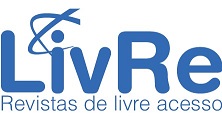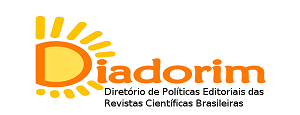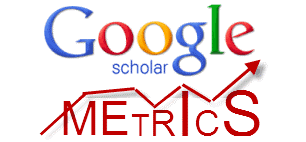AS BACIAS HIDROGRÁFICAS E A MEMÉTICA NO ENSINO DE GEOGRAFIA
uma experiência na Escola Municipal de Ensino Fundamental Professora Hylda Vasconcellos
DOI :
https://doi.org/10.20873/rtg.v11i25.15001Mots-clés :
Memes, Memética, Bacias Hidrográficas, Água, GeografiaRésumé
O ensino de Geografia está em constante mudança na contemporaneidade, sendo isso notadamente percebido pelo fato de seus métodos didático-pedagógicos estarem evoluindo em consonância com a era digital. Com isso, tornou-se necessário pensar práticas educacionais que instiguem os alunos e, ao mesmo tempo, fogem do ensino decorativo ou mnemônico dos saberes geográficos. Ao longo deste trabalho, pretende-se expor uma experiência acerca da utilização de memes e da memética, como linguagem comum às práticas espaciais e cotidianas de jovens, para com a aprendizagem geográfica nas escolas. Salienta-se, por fim, a importância de inserir a ludicidade no/para o ensino de Geografia, mais especificamente ao que tange o conteúdo das bacias hidrográficas e dos demais processos referentes à água na dinâmica da hidrosfera do Planeta, como fora sido desenvolvido nas turmas do 8° e 9° anos da Escola Municipal de Ensino Fundamental Professora Hylda Vasconcellos, no município de Santa Maria (RS).
Références
BAKHTIN, M. Estética da criação verbal. 6. ed. São Paulo: WMF Martins Fontes, 2021.
BAKHTIN, M. Problemas da poética de Dostoiévski. Rio de Janeiro: Forense Universitária. 2015.
BLACKMORE, S. The Meme Machine. Oxford: Oxford University Press, 1999.
BATISTA, N. L. Cartografia Escolar, Multimodalidade e Multiletramentos para o ensino de Geografia na Contemporaneidade. (Tese de Doutorado). Programa de Pós-
graduação em Geografia: Universidade Federal de Santa Maria, Santa Maria, 2019.
BEZERRA, M. R.; ALMEIDA, R. E. de S.; MENEZES, I. F. P. de; BESERRA, F. R. S. Entre o mundo real e virtual: A produção de memes como proposta metodológica para o ensino de Geografia. Revista Metodologias e Aprendizado, v. 4, 2021, p. 282-289. Disponível em: https://doi.org/10.21166/metapre.v4i.2249. Acesso em 10 de out. 2022.
BREDA, V. T. Jogo de tabuleiro “Conhecendo o Parque Ecológico" como recurso lúdico e educacional em Geociências. Anais do VIII ENPEC. 2011. Disponível em: http://abrapecnet.org.br/atas_enpec/viiienpec/resumos/R0037-1.pdf. Acesso em: 01 out. 2022.
CAVALCANTI, L. S. A geografia e a realidade escolar contemporânea: avanços, caminhos, alternativas. Anais do I Seminário Nacional Currículo em movimento – Perspectivas atuais, Belo Horizonte, MG, Brasil, 2010. Disponível em: http://portal.mec.gov.br/docman/dezembro-2010-pdf/7167-3-3-geografia-realidade-escolar-lana-souza/file. Acesso em: 01 out. 2022.
CAVALCANTI, L. S. O ensino de geografia na escola. Campinas, SP: Papirus, 2012.
CAVALCANTI, D. P. R.; LEPRE, R. M. Utilizando memes como Recurso Pedagógico nas Aulas de História. Congresso Internacional de Educação e Tecnologias, 2018. Disponível em: https://cietenped.ufscar.br/submissao/index.php/2018/article/view/746. Acesso em: 10 out. 2022.
CHAGAS, V. Da memética aos memes de internet: uma revisão da literatura. BIB, São Paulo, n. 95, 2021. Disponível em: https://bibanpocs.emnuvens.com.br/revista/article/view/119 Acesso em: 10 out. 2022.
DAWKINS, R. O Gene Egoísta. Belo Horizonte: Itatiaia, 2001.
DENNETT, D.C. Consciousness Explained. Boston: Little, Brown and Company, 1991.
FELTRIN, T.; BATISTA, N. L. Multiletramento: perspectivas para o ensino de língua portuguesa e leitura cartográfica no contemporâneo. In: SCHIEFELBEIN, L. R.; BIEGING, P.; BUSARELLO, R. I. (Org.). Educação 2.0: desafios e conquistas. 1ed. São Paulo: Pimenta Cultural, 2021.
LARA, M. T. DE A. A Presença de Memes em Práticas de Ensino/Aprendizagem de Língua Portuguesa: relações entre humor e ensino de língua materna em cursinhos pré-vestibulares (Dissertação de Mestrado). Programa de Pós-Graduação em Linguística e Língua Portuguesa da Faculdade de Ciências e Letras – Unesp/Araraquara, 2018.
LEINZ, V.; AMARAL, S. E. Geologia geral. São Paulo: Ed. Nacional, 1978.
LEAL-TOLEDO, G. Searching for a foundations of memetics. Trans/Form/Ação, Marília, v. 36, n. 1, 2013, p. 187-210. Disponível em: https://www.scielo.br/j/trans/a/ZDC38PhpMP5drhrTRFqRrSy/abstract/?lang=en. Acesso em: 10 out. 2022.
MASSA, M. S. Ludicidade: da Etimologia da Palavra à Complexidade do Conceito. Aprender - Caderno de Filosofia e Psicologia da Educação. Vitória da Conquista. Ano IX, n. 15, 2015, p.111-130. Disponível em: https://periodicos2.uesb.br/index.php/aprender/index. Acesso em: 03 out. 2022.
OLIVEIRA, K. E. de J.; PORTO, C. de M.; ALVES, A. L. Memes de redes sociais digitais enquanto objetos de aprendizagem na Cibercultura: da viralização à educação. Acta Scientiarum. Education, v. 41, 2019. Disponível em: https://doi.org/10.4025/actascieduc.v41i1.42469. Acesso em: 03 out. 2022.
PIAGET, J. O estruturalismo. Tradução de: Moacir R. de Amorim. 3° ed. São Paulo: Difel, 1970.
RIO GRANDE DO SUL (estado). Secretaria do Meio Ambiente e Infraestrutura - SEMA/RS. Bacias hidrográficas do Rio Grande do Sul. Disponível em: https://sema.rs.gov.br/bacias-hidrograficas. Acesso em: 05 out. 2022.
ROJO, R. H. R. Multiletramentos na escola. São Paulo: Parábola, 2012.
SANTOS, V. C. dos; RIZZATTI, M.; PETSCH, C.; BATISTA, N. L. O que não é cringe no ensino de geografia? Sobre práticas multiletradas e interatividade no processo de ensino-aprendizagem contemporâneo. Estudos Geográficos: Revista Eletrônica de Geografia, Rio Claro, SP, v. 20, n. 1, 2022, p. 59-80. Disponível em: https://doi.org/10.5016/estgeo.v20i1.16332. Acesso em 10 de out. 2022.
SHIFMAN, L. Memes in digital culture. Cambridge: MIT Press, 2014.
TUNDISI, J. G.; MATSUMURA-TUNDISI, T. A Água. São Carlos: Editora Scienza, 2020. Disponível em: https://sbhsf.com.br/wp-content/uploads/2020/08/novo_A_AGUA.pdf. Acesso em 10 de out. 2022.
Téléchargements
Publié-e
Comment citer
Numéro
Rubrique
Licence
© Journal de géographie Tocantinense 2022

Cette œuvre est sous licence Creative Commons Attribution - Pas d'Utilisation Commerciale - Pas de Modification 4.0 International.
Revista Tocantinense de Geografia ne rémunère aucun auteur pour la publication de ses textes. Le contenu des textes publiés dans cette revue relève de la responsabilité des auteurs.








.png)












